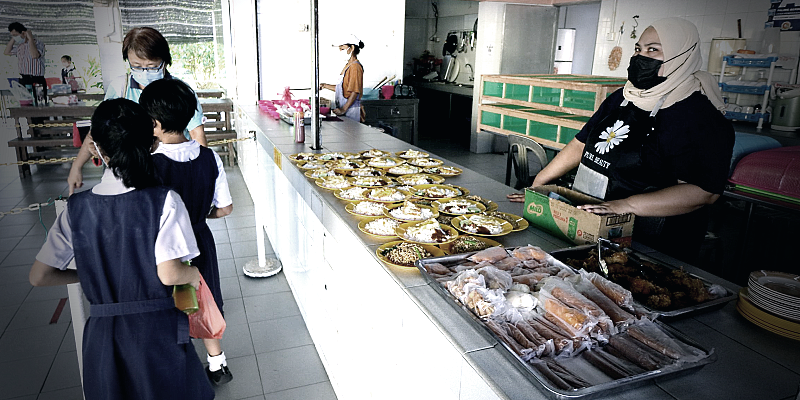Religion is all about inclusivity, including towards the taboos of other religions.
This week marks the start of the Ramadan fasting month.
During the Muslim fasting month, the issue of non-Muslim students eating at school canteen would be resuscitated, year after year… closing school canteen, no drinking, and eating is allowed only in bathrooms.
Such absurdities are not baseless accusations but are very common in our country. Some schools would set aside a classroom just for non-Muslim students to have their lunch, and such a respectful manifestation of empathy and inclusiveness ought to be commended by all.
Something as simple as “eating” has unfortunately been made highly complicated by irresponsible people who are more than eager to religionize and even politicize the issue, hence triggering intercommunity confrontation.
This thing has gone on for years and it seems that there is no prospect of it being resolved anytime soon. As such, education minister Fadhlina Sidek made an announcement just before the start of the Muslim fasting month that school canteens will not be closed for the sake of non-Muslim students.
So, this thing can become a non-issue if the school canteen is allowed to operate throughout Ramadan, and non-Muslim students can still eat as usual during their lunch break.
Based on the statistics department’s 2020 report, there were 25.74 million Muslims in this country, or 63.5% of the total population, very much more than Buddhists/Taoists (18.7%), Christians (9.1%) and Hindus (6.1%).
Nevertheless, religion is not a number game, but as one is devoted to his faith, he must also treat people of other faiths with empathy and learn to respect their beliefs.
As such, Muslims naturally do not wish to see other people eat wildly in front of them during the fasting month, just as vegetarian Buddhists fret at others taking meat or consuming alcohol in front of them.

This is a kind of respect, more so a person’s upbringing which ought to be learned by all, in particular primary and secondary school students.
Fadhlina should be given a big thumbs-up for urging school canteens to stay open during the fasting month for the convenience of non-Muslim students. But as parents, perhaps we should also tell our children to finish their food inside the canteen and avoid drinking in front of their Muslim classmates.
Sure enough the kids have the right to do so, but this will deny them a rare opportunity to learn to respect and be accommodating, and could potentially hurt their relationship with their classmates.
Religious freedom is very precious and in Malaysia, at least the Chinese get to choose their own religious beliefs. And as such, we must also learn to respect the Muslims and people embracing other religions as well.
As we pay homage to our ancestors during the Cheng Meng festival and burn joss sticks at the temple, we must also accept the reality that Muslims have to offer their prayers five times a day, just in a different manner from us.
Impact Malaysia under the youth and sports ministry has been organizing events for young Malaysians to visit mosques, gurdwaras, temples and churches, and this initiative should indeed be encouraged.
Unfortunately under political pressure, minister Hannah Yeoh has to instruct Impact Malaysia to cancel all religious visitations, and her ministry will not be organizing any more event related to youth solidarity in future.
As a matter of fact, politicians and some religious individuals are not the only ones feeling sensitive over visiting places of worship other than of their own religion. But religion is all about inclusivity, including towards the taboos of other religions.
It is sad that until this day racial discrimination and xenophobia are still very much alive in this country.
Pusat KOMAS has highlighted that there were 82 religion-related incidents reported here last year, of which 46 cases (or 56%) involved race, religion and politics, and almost all had something to do with the elections.
Put it this way, whenever there is an election, there is always racial and religious discrimination.
It is not hard to understand why. All religions are considered sacred and untouchable, and irresponsible politicians often take shelter under the religion umbrella in engaging in their divisive tactics.
Yes, we must learn to respect and endure other religions, but not wicked religious clerics!
ADVERTISEMENT
ADVERTISEMENT


































